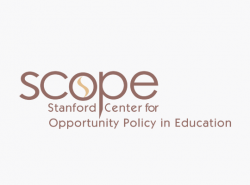Privatization or Public Investment in Education?

Is the education sector better served by a public investment approach than by a market-based, competition approach?

Is the education sector better served by a public investment approach than by a market-based, competition approach?

This three-part toolkit is designed to be an aid for creating performance tasks that are engaging to all students of diverse backgrounds.

Jaquith and Johnston offer strategies for Linked Learning pathway instructors to integrate core academic and career technical subjects to truly prepare students for college and career

Jaquith and Johnston show how district and school leaders can help Linked Learning teachers better understand career-relevant knowledge and skills.

Elle Rustique describes how a graduate profile can help a Linked Learning district achieve coherence between school practices, district goals, state policies, and national standards.

Jaquith and Johnston identify five lessons for district leaders to support learning among Linked Learning principals.

Parsi and Darling-Hammond look at how states are changing strategies to better target 21st-century learning skills.

This brief summarizes a full report on the effects of school-finance reform and student outcomes by Jackson, Johnson, and Persico.
Reliability and Validity of Inferences About Teachers Based on Student Test Scores

Stanford professor Edward Haertel discusses the reliability and validity of teacher value-added scores and whether they measure what they purport to measure.
Student Assessments That Work

Darling-Hammond looks at the evolving conversations on student assessment and the high stakes of adequately preparing our students for a complex world.